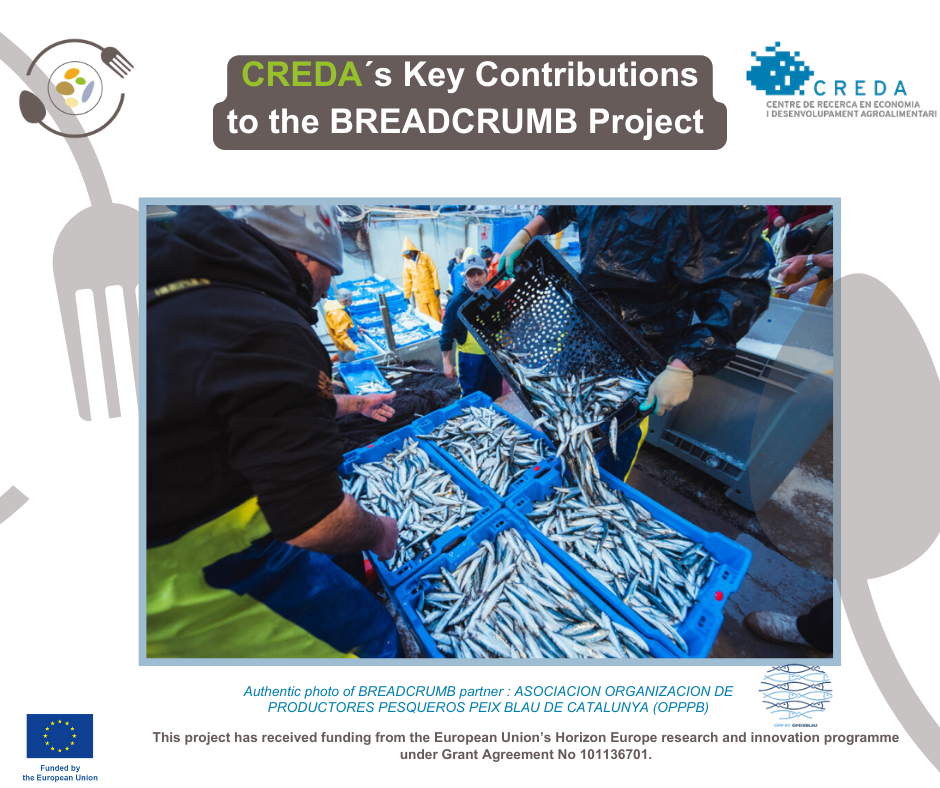October 23, 2024
CREDA´s Key Contributions to the BREADCRUMB Project
This summer, the BREADCRUMB project partner CREDA made substantial progress in both Work Package 2 (WP2) and Work Package 3 (WP3), contributing valuable insights to support the reduction of food waste and the optimization of the food supply chain.
In WP2, CREDA collaborated with OPP Peix Blau to collect important data from the seafood sector. Their team conducted interviews with key industry stakeholders, including the Confraternity of Fishermen of Spain and ASINCAR (Asociación de Industrias Cárnicas – Meat Industry Association), as well as representatives from distribution and wholesale companies. This comprehensive data collection will enhance our understanding of how food marketing standards influence food waste generation, particularly within the seafood and meat industries.
For WP3, CREDA is developing a theoretical economic model to capture the effects of private marketing standards on the rate of food waste along the food supply chain. The team has been refining the model by incorporating additional variables and actors to improve the model’s representation of the real-world challenges of supply chain management, from production to distribution.
Additional Contributions: CREDA has also contributed to WP1 and WP2 by conducting interviews within the fisheries and aquaculture sectors and engaging with various agents throughout the fisheries value chain. This work has helped develop a glossary of public and private standards for the marketing of fish in Spain. CREDA’s contributions also include a thorough bibliographic search of relevant marketing standards.
Key Findings:
- ASINCAR estimates a generic wastage rate of 6% for the meat sector.
- For fish, specific wastage values are still being assessed. However, marketing standards for fresh fish are highly demanding due to the need for freshness and physical integrity, particularly for wild-caught products. In aquaculture, standards are more influenced by certifications that guarantee quality and sustainability.
These advancements bring us closer to developing effective strategies to increase the market value of sub-optimal products and reduce food waste across Europe.
Stay tuned for more updates as the BREADCRUMB project continues to lead the way in food sustainability!


